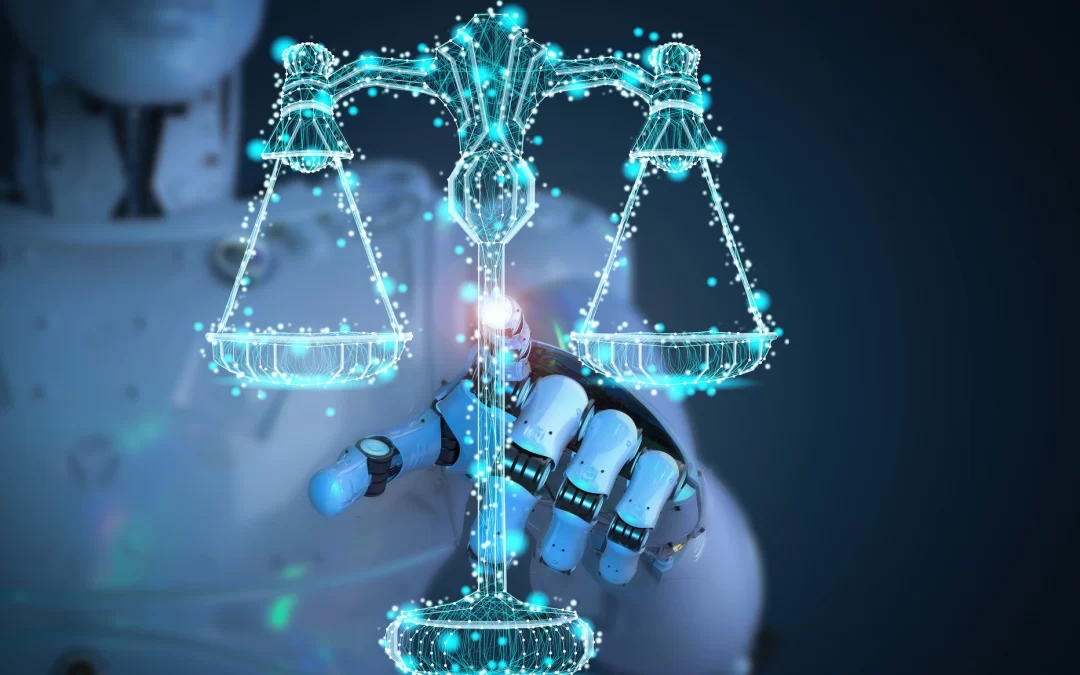By Ritabh Singh, 4th Year Law Student, Government Law College, Mumbai,
ritabhsingh44@gmail.com | February 28, 2023
INTRODUCTION
Technology has been evolving ever since the invention of bows and arrows. The 18th century marked the beginning of the industrial revolution, an indelible period where machines took over human jobs requiring repetitive physical labour. In the 21st century, we are witnessing Artificial Intelligence (AI) take over jobs which require complex mental labour. From self-driving cars [1] to automated financial investments [2], AI programs are automating activities which have always required human intelligence to now perform these activities with greater efficiency and precision.
In the technology-shy profession of law, AI programs are being used to automate repetitive tasks which do not require a lawyer’s professional skill. Some believe that these programs will take away the practice of legal professionals, to which an opinion is provided in this article.
WHAT IS “AI” AND HOW DOES IT WORK
Artificial Intelligence can be described as technologies developed by using algorithms which are capable of performing intelligent activities by themselves. Intelligence is understood as the ability to learn, understand, reason and perform activities. When artificially, or by the use of technology, intelligent systems are developed which can perform complex activities, such systems are known as AI programs [3].
Contrary to fictional representation, AI programs do not possess human-like thinking or cognitive abilities and instead perform functions by using computational mechanisms. The most common way in which an AI program works is by providing the system with cosmic amounts of data, and then by using heuristics, the system detects patterns in the data and uses the knowledge, rules and information which have been encoded by programmers in the system, to execute its functions. Sometimes, the system is not even provided with any data. It is simply developed by using algorithms and has specific rules which it follows to function. Unlike humans, many AI programs do not even understand the meaning of the data it is provided with, yet by using patterns and rules, these systems function more efficiently than humans [4]. As time passes, such systems also learn how to function better by interpreting feedback, consuming more data and learning more patterns. This self-learning process is also a technology implanted in many AI programs, known as Machine Learning.
Different AI programs exist for specific purposes, and thus these programs are trained in a certain manner to achieve the objective of automation. Automation refers to the process in which AI programs perform activities automatically without the intervention of humans.
None of the existing AI programs are Strong AI programs, i.e, which implement human-like conscious thinking to function [5]. Strong AI programs are technologies which are in development.
CURRENT APPLICATION OF LEGAL AI PROGRAMS USED WORLDWIDE
a) Kira systems: This advanced legal AI program uses machine learning to identify, extract and analyse text in a given contract or document. It facilitates due diligence and can create a summary of documents. It is used for reviewing contracts and other documents [6].
b) Lex Machina: Lex Machina is used for predicting the behaviour of the judge, opposing law firms, lawyers and parties. It allows the user to then accordingly strategize and analyse the case [7].
c) Luminance: It is a document review legal AI program which uses machine learning and deep learning to maintain client records, generate and review contracts, and highlight key points and abnormalities in a contract [8].
Various other legal AI programs exist which facilitate legal research, legal opinion, drafting, pursuing litigation, and more. All these systems are available online and can be used after paying a nominal fee. The result of using such systems is that all repetitive work which required minimum professional intervention is now completed at a faster rate, thereby saving the creative energies of advocates.
FUTURE OF AI PROGRAMS IN THE LEGAL PROFESSION
On the non-litigation side of the legal profession, OpenAI’s ChatGPT has the potential to make legal practice redundant in certain areas. ChatGPT is an online chatbot (a form of AI) which has been fed tremendous amounts of data and functions on machine learning [9]. This chatbot provides precise and relevant legal advice, and can also draft various legal documents such as a Special Power of Attorney, Partnership Deed, etc. While the chatbot provides a disclaimer to not rely on its legal opinion and its drafts, the chatbot’s answers are extremely reliable and its drafts are fit for use. Moreover, the chatbot is easy to interact with, provides answers immediately and is available 24×7. The visible drawback is that this technology takes a lot of time and effort to train, and also its data has not been updated after 2021. In the profession of law, lawyers constantly update themselves with amendments and landmark judgements. Updating the chatbot’s data continuously will become very expensive and time-consuming. Another drawback is that the chatbot answers in a guessing language, which cannot be trusted by someone in need of legal help. However, even in its current state, it is a tool which can widely be used for legal advice and drafts, and the future potential it has in the legal profession is unquestionable.
In the litigation side of the legal profession, an American company called ‘DoNotPay’ had made headlines in early January of 2023 when it made public its plan to deploy a ‘robot lawyer’ in court to defend an accused in an alleged traffic violation case [10]. This ‘robot lawyer’ in actuality is a legal AI application which is accessible from a mobile phone or a desktop. The application would have heard the arguments in court and via a Bluetooth earpiece would have instructed the defendant accordingly. The trial which was to happen sometime in late February 2023 stands postponed as the state prosecution threatened the CEO of ‘DoNotPay’ with jail time for trying to conduct such an experiment in a court of law. The effectiveness of such legal AI applications cannot be confirmed as of now. However, it is possible that developing and using such AI applications can be of great use to an arguing counsel as well as a client. In India, an arguing counsel is not usually well-versed in the facts of a case, and he or she relies on a junior for the same. Using such a program instead of a junior can be extremely effective since the program can be fed with the facts of the case along with all the relevant statutes and judgements, which will directly help an arguing counsel. The program, being capable of legal reasoning, can further build upon the ongoing proceedings in a court to make strategic arguments, which can be referred to by an arguing counsel. Where clients require quality legal aid which they cannot afford, using such a program can provide massive help. The drawback here is that such a program does not perform well in activities which require critical reasoning and intuition. In a scenario where such skills are required, the program will not be of great help.
CERTAIN DRAWBACKS OF AI PROGRAMS
AI programs are not perfect and do give rise to significant problems, the first being that of ethics. There are numerous ethical questions which are raised against the use of AI programs, and an important one is using AI programs for deception and manipulation. The incredible ability of AI programs to create evidence from absolutely nothing can cause serious damage to the legal system. These programs can create ‘actual’ signatures on contracts along with ‘real’ audio and video clips of any relevant party to a case, which can frustrate the justice delivery process. Detecting the real evidence from the fake one is nearly impossible, and can be known only after it has been accepted by the user of such AI programs [11].
Secondly, following data patterns results in AI bias wherein the AI program learns to exhibit bias against a particular group. To illustrate, if in the data provided to an AI program, members of Group ‘A’ indulge in crime more than members of Group ‘B’, then the AI program will develop a bias against members of Group ‘A’ and will be more likely to tag them as criminals. This makes the AI program unreliable. As witnessed in the functioning of ‘judge-bots’, which are AI programs developed for judging criminals and helping a judge decide a particular case, the judge-bots handed over greater punishments for members of a group it had developed a bias against [12].
Lastly, it is not clear as to who will be held liable for mistakes committed by legal AI programs. Where a serious fraud or crime has been committed by the AI program, even if it is not intentional, there exists confusion about who should be held culpable – law firms, lawyers, clients or the developer of the AI program. No real punishment can be given to the AI program as it is not a conscious being.
CONCLUSION
To put everything in perspective, no, AI-powered robots will not take away the practice of lawyers in the next 20-30 years. However, repetitive and mundane tasks that a lawyer performs will certainly be automated. These tasks will be done at an unimaginably faster rate by legal AI programs and will give an incredible competitive edge against those who continue the manual performance of mechanical tasks. The takeaway is that those lawyers who employ AI programs will automate unnecessary tasks and will be able to use their time on more intellectual and complex issues, which will increase their value. Many top law firms which have begun employing legal AI programs have either laid off their juniors to reduce their costs or have their juniors perform more complex tasks which the AI program cannot perform. It becomes imperative for lawyers to take on more intellectual tasks and increase their competency to stay relevant. Lawyers will also have to educate themselves on AI technologies and must learn to use legal AI programs for their benefit and the benefit of their firms and clients.
It is uncertain what the later future will be, but the next 20-30 years of the legal profession will certainly be dominated by those who take advantage of legal AI programs and leverage it against those who don’t. The past has taught us that technological advancements always happen very quickly, but adopting these technological advancements is a dragged-out process. These advancements can’t be stopped; they can only be embraced to achieve greater success. In the oversaturated and strangely overworked profession of law, an investment in legal AI programs will provide great returns in both, the long and short run.
[1] RP ; Self-driving cars : Mike Daily & Others
[2] RP ; Research and Policy briefs – World Bank Chile Centre and Malaysia Hub
[3] RP ; Arrived at by: Legal definition of AI – Jonas Schuett, Goethe University Frankfurt
[4] RP ; Journal of Artificial Intelligence Research
[5] IBM ; Strong AI
[6] kirasystems.com
[7] lexmacina.com
[8] Lumninance.com
[9] OpenAI ; ChatGPT 3.5 – openai.com
[10] usatoday – AI ‘robot lawyer’ to take on speeding tickets in court
[11] Learn.g2 ; AI ethics are a concern
[12] AIMultipe ; Bias in AI







